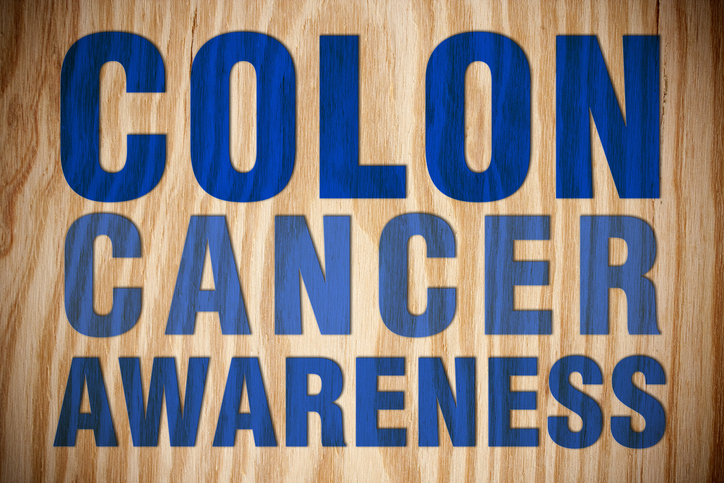In Shocking News, Actor Chadwick Boseman Dies From Colon Cancer. We Must Be Proactive.

By Joy Stephenson-Laws, J.D., Founder
It was shocking to hear about the recent passing of Chadwick Boseman. The handsome, young and wildly successful actor, who starred as the main characters in films such as Black Panther and Jackie Robinson, secretly battled colon cancer for four years. He succumbed to the illness last week at just 43-years-old.
This devastating news left the country shaken. Within the four year span that Boseman fought colon cancer, he achieved so much. He really was a true superhero.
“A true fighter, Chadwick persevered through it all, and brought you many of the films you have come to love so much,” his family said, according to this CNBC report.
“From Marshall to Da 5 Bloods, August Wilson’s Ma Rainey’s Black Bottom and several more — all were filmed during and between countless surgeries and chemotherapy. It was the honor of his career to bring King T’Challa to life in Black Panther.”
How could this have happened to someone so young, so accomplished and someone who appeared to be in great physical shape?

Unfortunately, recent research has shown that rates of colorectal cancer (which is cancer that occurs in the colon or rectum) have been on the rise and continue to rise in younger populations.
“The rate at which people are diagnosed with colorectal cancer in the US is dropping among people 65 and older but rising in younger age groups,” according to recent research provided by the American Cancer Society.
“In 2020, 12% of colorectal cancer cases will be diagnosed in people under 50 – about 18,000 cases. Rates have been increasing since the mid-1980s in adults ages 20-39 years and since the mid-1990s in adults ages 40-54 years, with younger age groups experiencing the steepest increase.”
This is very disturbing and alarming, to say the least. And although there is no definitive answer as to why younger people are being so severely affected by colorectal cancer, which is the third leading cause of cancer-related deaths in the United States and third most common cancer in men and women (according to the Centers for Disease Control and Prevention (CDC)), obesity and a processed food diet may be part of the problem.
(Chadwick Boseman was by no means overweight or obese (and I cannot speak to his diet), but, of course, we always see cases of severe illness in people who look very healthy).
America's obesity epidemic.
There is an obesity epidemic in America (especially among younger people), which is the result of being too sedentary and over consuming ultra-processed foods.
One recent study found a link between obesity and a greater risk of early-onset (meaning at a younger age) colorectal cancer among women. Researchers of the study examined more than 85,000 women. The women who were obese (with a body mass index (BMI) of 30 or more) had a nearly doubled risk of early-onset colorectal cancer compared to women with a body mass index of 18.5 to 22.9.
Although this particular study looked at women, it is important to note that colorectal cancer is slightly more common in men (about 1 in 22 (4.49%) for men and 1 in 24 (4.15%) for women, American Cancer Society).
“Insulin [which is a hormone produced by the pancreas that controls how the body uses and stores blood sugar] is the best established biochemical link between obesity and colon cancer; controlling hyperinsulinaemic states, such as the metabolic syndrome and diabetes, may be a means of reducing a person's risk of colon cancer,” reports the National Institutes of Health (NIH).
Also keep in mind that being overweight or obese puts the body in a state of chronic inflammation, which is believed to be the root cause of many types of disease and cancer. Furthermore, consuming processed and ultra-processed foods has been connected to an increased cancer risk. Particularly, processed meats, such as salami and hot dogs, may increase the risk of colorectal cancer.
There are plenty of Americans who eat processed foods and are not overweight. This does not mean that they are not at an increased risk of developing colorectal cancer. This is also why it is extremely important to be aware of body composition.
Screening is not only key but life-saving.Another reason why we may be seeing higher rates of colorectal cancer in younger people is due to the lack of screening for it. Back in 2018, the American Cancer Society updated its guidelines for colorectal cancer screening by lowering the recommended age to start doing this to 45 (it was previously 50).
In my opinion, it certainly doesn’t hurt to start screening even earlier, especially if you have diabetes, are obese or overweight or have a family history of this type of cancer.
In addition to this, “African-Americans are more likely to develop CRC at a younger age and to be at a more advanced stage when diagnosed. According to the National Cancer Institute, even when African-Americans are diagnosed with early stage disease, they have significantly worse survival rates,” according to one source.
So if you are African-American, you may want to start screening for colorectal cancer earlier.
There is more to screening aside from getting a colonoscopy.
I had my first colonoscopy when I turned 50. I recommend asking your doctor or a competent healthcare professional when you personally should have a colonoscopy based on your age, background, current health status and other variables.
I also think it is extremely important for young people to get a stool test when they go to the doctor for a physical. This is not something many people do as part of their regular check-up, but this could help catch colorectal cancer in its very early stages.
“Stool-based tests are non-invasive colorectal cancer screening options. No special diet or bowel preparation (no laxatives or enemas) is required for a stool-based test,” reports the American Cancer Society.
“However, if the test does show abnormal signs of blood or a possible cancer or pre-cancer, a colonoscopy will be needed to confirm the result, and possibly to remove any abnormal findings or polyps. It’s important to remember the cause of an abnormal result may be a non-cancerous condition, such as ulcers or hemorrhoids.”
It is, however, important to know, “Stool-based tests are not the best option for everyone. They are recommended for people who have an average risk for colorectal cancer: no personal history of pre-cancerous polyps, no colorectal cancer that runs in the family, or no other risk factors.”
The good news is that many young people (for example, in their thirties and early forties) fall into this category. Regular stool tests could be a great tool for prevention and early detection.
You can also consider using an at-home screening test, such as Cologuard, that you send to a lab.
Know the symptoms.
Colorectal cancer often comes with no symptoms or warnings. This is why screening is so key. But if you notice any changes in your bowel habits, such as chronic diarrhea or constipation, it’s better to be safe than sorry and get checked out by a doctor. Blood in your stool, rectal bleeding, unexplained weight loss may also be signs. To learn more about what to be mindful of, read here.
We must be proactive.
We have the power to prevent this if we are proactive. Again, I cannot stress the importance of screening and talking to your doctor about any changes in bowel habits and even your digestion.
Of course, no one wants to talk about their rectum, colon or what their stool looks like, but we have to accept that these are parts of our bodies and bodily functions that are key in our health. It is nothing to be embarrassed about or ashamed of. Your doctor will not think it is gross or weird that you bring this topic up at your next physical. As patients, we have to be advocates for ourselves and speak up. You cannot always rely on your doctor to give you all the tests you need. You need to ask.
As always, maintaining a healthy lifestyle and healthy weight is imperative. And, of course, smoking and drinking alcohol excessively increases the risk of developing all types of cancers.
To avoid being obese, it is highly recommended to eat a diet rich in nutrient-dense foods such as fruits, vegetables, whole grains and legumes. But aside from weight, nutrient-rich foods help reduce inflammation in the body. And as mentioned, chronic inflammation appears to be a root cause of early-onset colorectal cancer.
These nutrient-rich foods are also great sources of dietary fiber, and fiber has proven to be key not only in the prevention but also management of colorectal cancer.
Steer clear of the proinflammatory diet.
Just as important as it is to know which foods to eat, you need to know which foods to avoid (or eat in moderation).
Recent research suggests that a proinflammatory diet, (a diet heavy in processed foods and alcohol), increases the risk of colorectal cancer in both men and women. Eating too much of the following foods may increase your risk of colorectal cancer: red meat, organ meat, refined flour and sugary drinks.
(As mentioned, processed meat like salami and hot dogs have also been linked to an increased risk of bowel cancer).
Know your nutrients.
Getting nutrients like certain vitamins and minerals from eating healthy foods is invaluable to your health and preventing disease. There are specific nutrients, such as calcium, sulfur and selenium, that may help decrease your chance of getting colorectal cancer if you get an adequate intake of these nutrients.
Get a nutrient test.
Maintaining nutritional balance in your body, as in not having too much or too little of any essential vitamin or mineral, is key in preventing inflammation and disease and maintaining your overall health and wellness. Getting routine nutrient tests, will determine if you have any nutrient imbalances. If you do, a competent healthcare professional can work with you on possibly making adjustments to your diet and/or recommend quality supplements.
For more pH Labs blogs about colorectal cancer, click here.
Rest in peace Chadwick Boseman.
Disclaimer: This article is not intended to provide medical advice. Please consult with your doctor or another competent healthcare practitioner to get specific medical advice for your situation.
The pH professional health care team includes recognized experts from a variety of health care and related disciplines, including physicians, attorneys, nutritionists, nurses and certified fitness instructors. This team also includes the members of the pH Medical Advisory Board, which constantly monitors all pH programs, products and services. To learn more about the pH Medical Advisory Board, click here.







